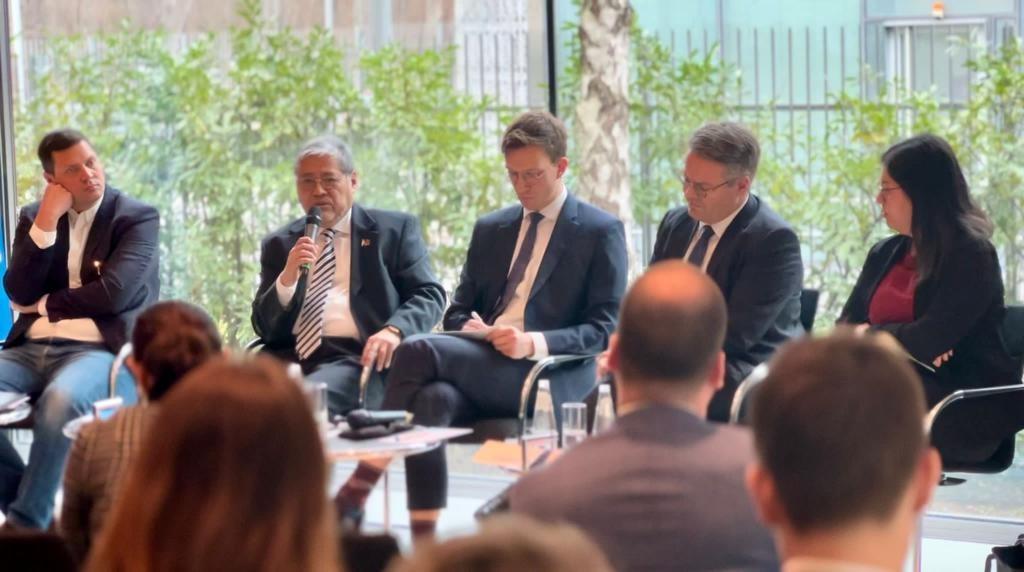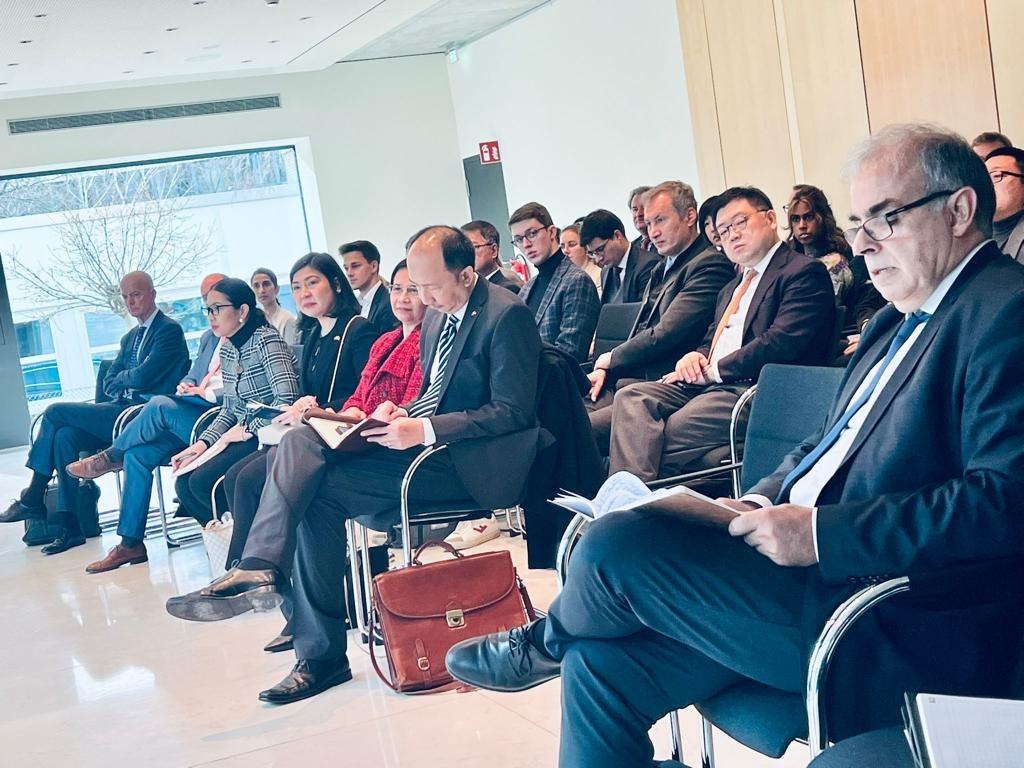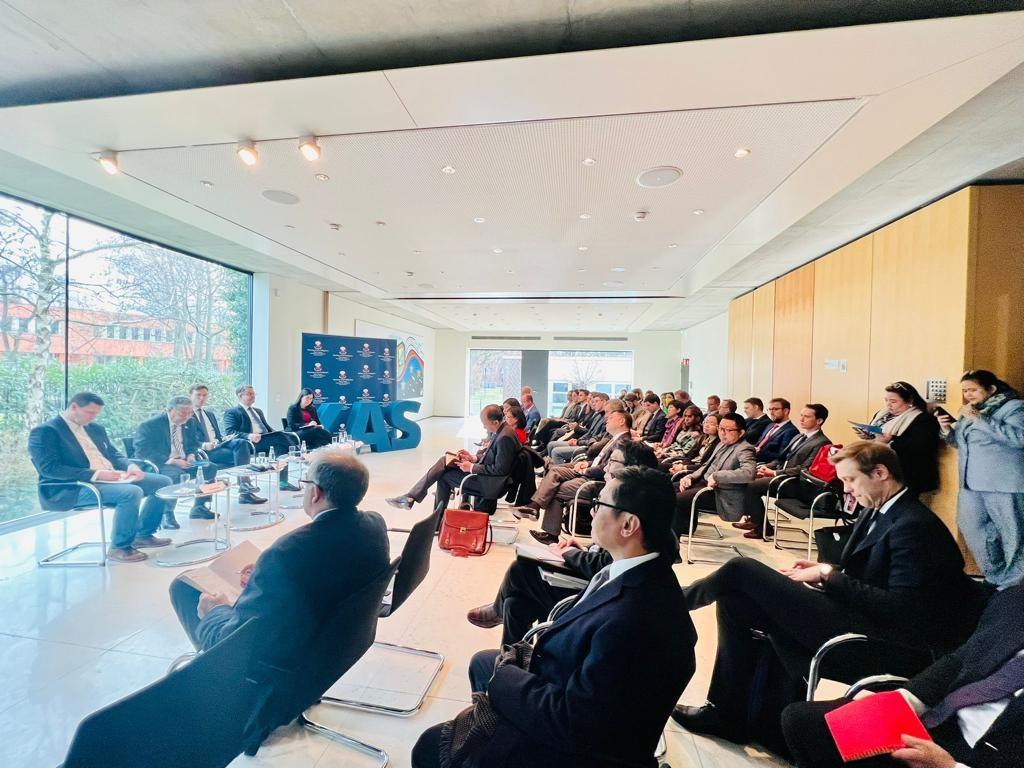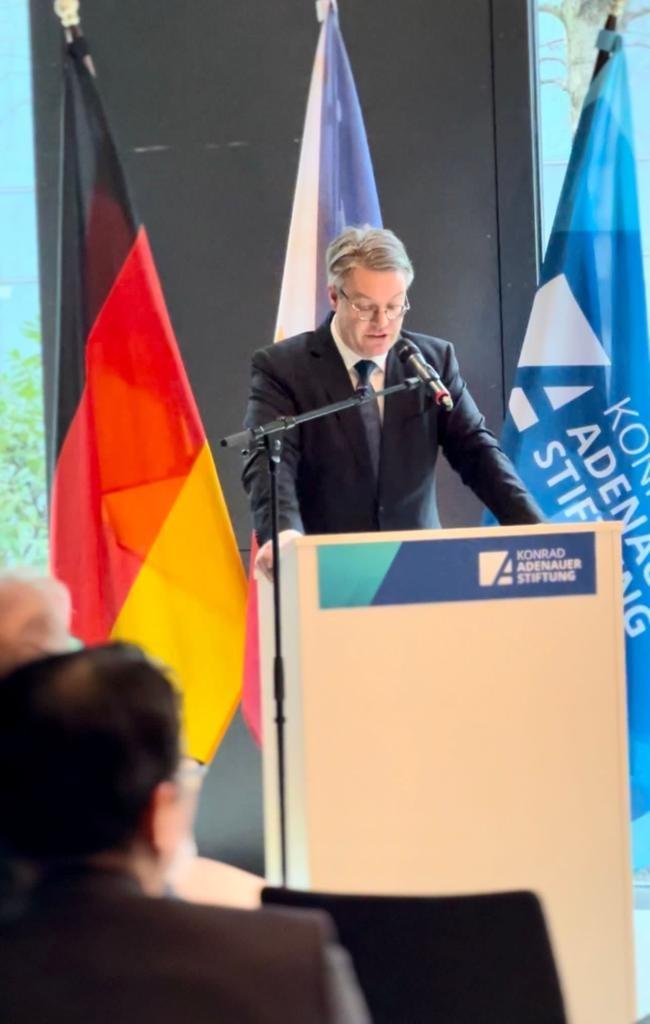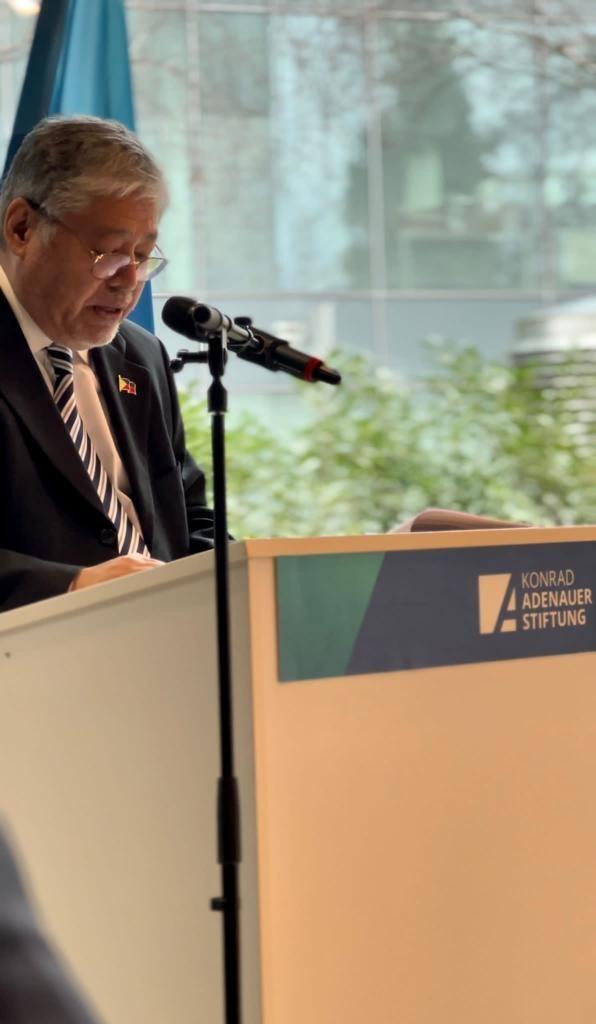ASEAN remains the key regional institution but it is facing both internal and external challenges. Its members have different strategic priorities and the 2021 coup in Myanmar has cast a shadow of doubt over its ability to remain a forum for constructive dialogue in the region. No member of ASEAN wants to be forced to align itself exclusively with either China or the US. On the one hand this leaves room for the European Union to position itself as a more neutral partner for countries in the region; at the same time it was emphasised that the EU has long lacked geopolitical involvement and much of its focus will continue to lie on countering Russia in its own backyard.
Philippine and German perspectives on their regional roles and interests
German and Philippine interests in the Indo-Pacific region are “totally in sync”: both want to safeguard the law of the sea and the wider rules-based international order
The speakers highlighted that a shared sense of purpose for Germany and the Philippines lies in creating and safeguarding a free, open and inclusive region. Both countries are strong proponents of the rules-based international order enshrined by UNCLOS and other treaties.
The Philippines have long championed multilateral efforts to create a regional architecture centred around the interests of local states. It avoids viewing the regional US-China rivalry as a zero-sum game and wants to advance bi- and multilateral partnerships with both countries, as well as with other influential actors such as Japan or Germany. The Philippines and other Southeast Asian states see a growing need to diversify their economic and political interests across the region.
In line with its Indo-Pacific Guidelines from 2020, Germany is striving to expand its cooperation in this region. Russia’s war of aggression in Ukraine and its effect on global energy and food prices have renewed Germany’s attention to developments in the region. It wants to avoid a fault line deepened by Chinese-American rivalry and aims to provide an open platform for cooperation based on international rules and norms. Its overarching strategy for engagement with the region rests on five pillars: 1. Deepening relations with regional value-partners; 2. Promote high quality trade agreements; 3. Expand security cooperation; 4. Strengthen climate diplomacy; 5. Synchronise its actions with its national security and China strategy.
Growing US-China competition and its impact
The rise of China and its growing territorial and geopolitical ambitions in the Indo-Pacific were characterised as the key driver of instability in the region. In this context, tensions between China and the US increasingly constrain the role of multilateral institutions and contribute to an environment of uncertainty for regional players, particularly ASEAN member states. Some regional actors perceived the regional security order not as multilateral and open, but bilateral and non-inclusive.
A key aspect of geopolitical competition is China’s perception of the Indo-Pacific concept as a concerted effort to counter it. In response to this China attempts to sway countries through bilateral pressure tactics that undermine rather than uphold the existing rules-based regional order. Due to its proximity to Taiwan and Chinese-claimed territories in the South China Sea, the Philippines are particularly affected by China’s assertive and sometimes aggressive behaviour. At the same time, the Philippines do not perceive the conflicting claims in the South China Sea as the totality of Philippine-Chinese relations and continue to seek constructive partnerships with Beijing.
The way forward: outlook for the next five years
In their final remarks, the participants expressed optimism for continued stability and prosperity in the Indo-Pacific. However, all actors should carefully work towards this goal rather than take it for granted.
Germany needs a more holistic approach to the region, encompassing not only trade but also security cooperation. Speakers called on the Federal Government to clarify its theory of stability in the region: will it align more with US-led interests or strive to position itself independently and work towards multipolarity? Germany should avoid to fall back on the assumption that vibrant trade links will be enough to maintain peace.
Participants agreed on the need for a predictable order in the Indo-Pacific, which must be able to withstand increasing bipolarity between the US and China. Any negotiations for Code of Conduct in the South China Sea must take place within the framework of ASEAN. To increase trust between all actors, more face-to-face diplomacy and open lines of communication will be key. The goal is not to de-couple from any actor. It is to de-risk.
Event organisers: KAS Asia-Pacific Department, KAS Analysis and Consulting, Embassy of the Republic of the Philippines



